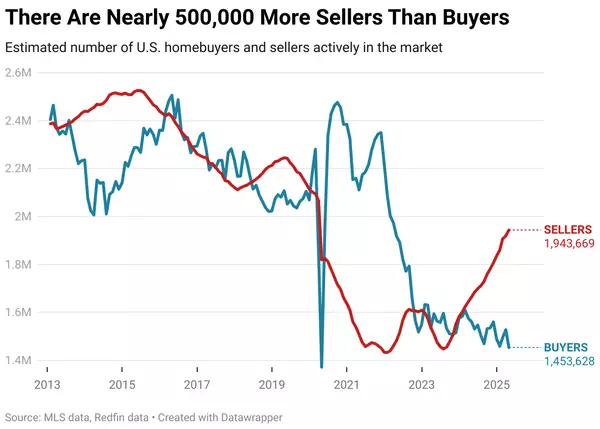Are You Ready to Buy a Home? 4 tips to eliminate financial stress

Are You Ready to Buy a Home? 4 tips to eliminate financial stress
Buying a home is a big milestone, but it's crucial to know when it's the right time for you. Purchasing a home is a long-term investment, and jumping in without proper financial planning can lead to significant stress. It's just as important to know when not to buy a home as it is to know when to make the leap.
Whether you're a first-time buyer or looking to move, understanding your financial situation is key to making a wise decision. Let’s dive into what recent home buyers are experiencing in today’s market and how you can avoid common pitfalls. For more insights on the long-term benefits of real estate investment, check out our blog from last week.
Causes of Financial Stress for Today’s Home Buyers
A recent survey from Clever Real Estate found that 43% of homeowners who bought in 2023 or 2024 have struggled to meet their monthly mortgage payments. Here's why:
- 37% of buyers purchased a home that exceeded their initial budget.
- 44% of new homeowners have taken on extra debt outside of their mortgage to maintain their lifestyle.
- 50% accepted a higher interest rate than planned. (This is why it’s important to base your budget on a monthly payment, not the purchase price of the house.)
These factors can lead to financial stress and regret, which are the last things new homeowners need. To help you steer clear of these issues, here are some key financial tips to consider before taking the plunge.
4 Key Financial Tips to Consider
-
Assess and Plan Your Budget Setting a realistic budget is the cornerstone of a successful home-buying experience. Don't just think about the purchase price of the home. Include all potential expenses that will impact your monthly budget, like property taxes, insurance, HOA fees, and unexpected repairs. Always leave a little wiggle room for fluctuating mortgage rates. Focus on what you can comfortably afford in monthly payments rather than the total purchase price.
Also, don’t forget the upfront costs associated with buying a home—down payment, closing costs, home inspections, and moving expenses. Planning for these ensures you don't have to dip into emergency funds or take on extra debt.
-
Minimize Additional Debt Aim to avoid taking on extra debt before, during, and immediately after your home purchase. Keeping your finances in check will help you manage your mortgage payments more comfortably. After making regular payments for several months, reassess your finances and adjust your budget as needed.
-
Monitor and Improve Your Credit In Q1 2024, the median credit scores for mortgages were flat at 770, and auto loans hit a record high of 724 according to the New York Fed. This shows that maintaining good credit is essential for favorable loan terms. Regularly check your credit report and address any discrepancies.
-
Plan for the Future Think about your long-term financial goals and how buying a home fits into them. Are you planning to stay in the home for several years, or is this a short-term move? Your plans will impact how you manage your finances and your decision to buy. Ensure your home purchase aligns with your broader financial objectives to avoid future regrets.
Having an emergency fund is also vital for financial stability. Make sure you have enough savings to cover at least three to six months of expenses. This safety net provides peace of mind and financial security if unexpected costs arise.
Knowing When NOT to Buy
So, when should you consider holding off on buying a home? Here are some signs:
- High Debt Levels: If your debt-to-income ratio is high, adding a mortgage might strain your finances.
- Unstable Income: If your job situation is uncertain, it might be wise to wait until your income is more stable.
- Lack of Savings: Ensure you have enough savings not just for the down payment, but also for emergencies and ongoing maintenance.
- Uncertain Plans: If you may be moving in the near future, purchasing a home may not be the best option.
Recognizing these signs and being honest about your financial situation can save you from potential stress and regret. By taking the time to assess your readiness and plan carefully, you’ll be in a stronger position to make a successful and satisfying home purchase when the time is right. Remember, waiting until you’re financially prepared isn’t a setback—it’s a smart step towards a more secure and enjoyable homeownership journey.
Categories
Recent Posts











"My job is to find and attract mastery-based agents to the office, protect the culture, and make sure everyone is happy! "
